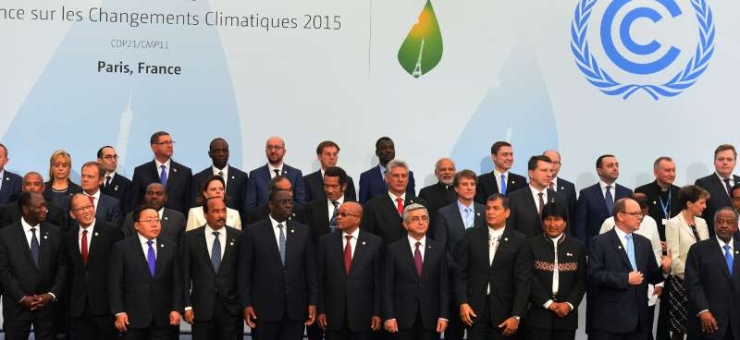COP21 opening building political momentum towards the achievement of a global climate agreement in Paris

The COP21 French Presidency had made the political choice to invite the Heads of States at the beginning of the climate summit to avoid the bottleneck effect which had contributed to the collapse of the negotiations in Copenhagen in 2009.
This strategy seemed to have paid off by lifting up the debate on climate in a geopolitical environment that was far from being easy. Most Heads of States gave some passionate speeches about the need to protect nature and save humanity and sent many positive signals to the negotiators by advancing concrete pledges and commitments.
President Obama delivered a message of “hope rooted in collective action” talking about a “turning point”. “We are the first generation to experiment climate change and will be the last generation that can do something about it. “We need to go towards a low carbon future to unleash the creation of new jobs, new investment”, “lifting people from poverty” he added, clearly linking climate change to jobs.“It is about “harmony between man and nature”.
Xi Jiping (China), called for a “binding agreement” and a “win-win cooperation” in which all countries, including emerging countries, should help developing countries to cope with climate change to build a “future of inclusiveness”. “Addressing climate change is about a shared mission for mankind”, he concluded.
Australia, Germany, UK, France and Brazil also delivered a constructive tone. You can find highlights from the leaders speeches here.
India and France announced a major initiative called the International Solar Alliance to boost access to solar energy in 121 countries. Bill Gates committed 26 billionaires and Heads of States to massively invest in new technologies and renewable energy which could create millions of green jobs.
Finally, the most vulnerable countries managed to make their voice hear by forming a coalition of 34 countries asking developed countries to raise their ambition and further reduce emissions to stay below 1.5°C of global temperature increase. Above this level, some Pacific Islands may totally disappear from the map forcing their inhabitants to relocate to other countries.
Uncertainties remain regarding the capacity of the Parties to deliver the 100 billion US dollars a year of climate funding which were had been pledged in Copenhagen in 2009 as a minimum level to be reached by 2020.
But overall, the energy level at COP21 is definitely up with a record number of press articles, media coverage and online conversations on #cop21 and #unions4climate.
The next question will be whether or not the technical negotiations will reflect the same level of ambition in the new draft agreement that will be published on Saturday, the 5th of December.
More news on: http://www.uni4climate.org

